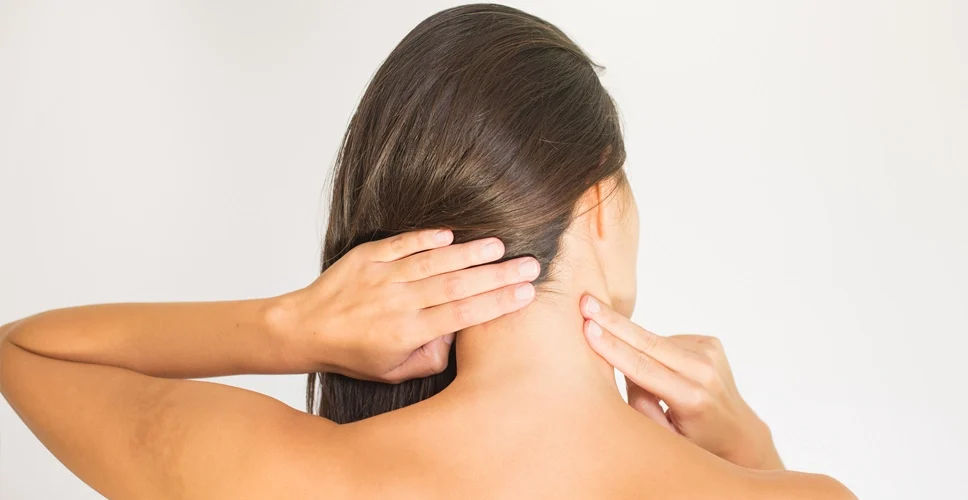
What Is a Spinal Disc?
The spine is composed of 33 small bones called vertebrae. Located between each vertebrae is a spinal discs, or intervertebral disc. Spinal discs are cushioning components for vertebrae, absorbing the shock our spine would otherwise receive from walking, running, sitting, and other everyday activities.
Moreover, discs give the spine the ability to move and bend. Alone, vertebrae and their joints would be stiff and lack mobility. Spinal discs sit in between them such that we can bend from the waist, turn side to side, and keep our spine flexible.
What Is a Herniated Disc?
Spinal discs are composed of a jellylike substance which is encased in a tougher material that protects their surface from damage. However, daily wear and tear, vigorous activity, and sudden trauma can cause the spinal disc to herniate. When a disc herniates, the jellylike nucleus seeps through a tear in the rougher exterior.
When we suffer a herniated disc, we experience localized pain stemming from the damaged disc itself. However, when the softer material of the disc pushes through a tear, it also irritates the surrounding area. This is because the structures of the spine are housed within the spinal canal, a narrow channel that does not expand to accommodate swelling or extraneous substances.
When the nucleus of a herniated disc protrudes into the spinal canal, the material itself or the resulting inflammation can compress the nerves flowing through the spinal canal. This causes radicular pain, otherwise known as shooting pain that travels to other areas of the body.
Symptoms of a Herniated Disc
Symptoms of a herniated disc in the back will typically worsen when you’re active and lessen when you rest. But even the smallest motions, such as sneezing, coughing, or laughing, can aggravate pain symptoms.
A herniated disc can occur at any point in the spine, from the neck down to the hips. However, symptoms of a herniated disc will vary widely depending on which area of the back is experiencing a herniation.
Lumbar Herniated Disc
The lumbar spine lives within the lower back, and it extends from tops of the hips to the bottom of the ribs. Most herniated disc occur at this level, because everyday activity and stress put an immense amount of pressure on this area daily. A lumbar herniated disc results in symptoms that mimic sciatica:
- Radiating pain in the buttocks, thigh, and calf
- Numbness or tingling
- Pain in the foot
- Weakness
Thoracic Herniated Disc
Herniated discs at the thoracic level are very rare, as this area is what’s considered the middle back. This area extends from the bottom of the ribs to the shoulders. It is typically at lesser risk of herniation because we do not bend or lift from this area as we would from the lower back. The limited mobility of the thoracic spine typically makes thoracic herniated discs unusual, however, age-related disc degeneration may result in herniation or tearing.
In the case of a thoracic herniated disc, symptoms include:
- Numbness or tingling
- Organ pain
- Weakness
- Fatigue
Cervical Herniated Disc
The cervical spine extends from the base of the skull to the shoulders, and we more regularly refer to it as our neck. Following lumbar herniated discs, cervical herniated discs are the most common. This is because from eating to reading, working, or even talking, we tend to move our necks regularly each day. This puts repeated wear and tear on the discs located between cervical vertebrae.
When a cervical disc herniates, symptoms include:
- Weakness
- Numbness or tingling
- Radiating pain in the shoulder and arm
- Shooting pain when coughing or sneezing
Causes of a Herniated Disc
A herniated disc in the back can be the result of a variety of scenarios, especially depending on the level of the spine at which the herniation occurred. Herniated discs can be the result of age-related diseases or wear and tear. For instance, as we age, spinal discs begin to lose their water content. This leads to a loss of flexibility and cushioning, causing discs to become stiffer and more prone to tear.
In the lumbar spine, spinal discs tend to herniate due to excessive pressure. This can come from completing exercises such as weightlifting or picking up a heavy package. Likewise, twisting or turning the body rapidly can cause a herniate to herniate.
In the cervical spine, herniated discs are typically a result of whiplash. During a whiplash injury, the head rushes forward and ricochets backward rapidly, straining the muscles of the neck. However, in this violent motion the structures of the spine can become sprained, causing the exterior a disc to tear.
How Is a Herniated Disc Diagnosed?
Spinal discs are not evident to the naked eye. At ChiroCare of Florida, herniated disc pain relief begins by first ruling out other sources of pain. Your physician will perform a physical examination and will likely ask you a variety of questions about your symptoms.
Next, your ChiroCare of Florida physician will request medical image testing. First, an x-ray will be taken. A standard x-ray will not be able to show if you have a herniated disc, however, it will allow your physician to rule out if pain is being caused by another ailment, such as a fracture or tumor.
An MRI or CT scan is typically the next method of medical imaging used to identify the herniated disc and pinpoint which nerves are aggravated. MRI images specifically can locate the position of the herniated disc in the spine, determine the level of herniation, and locate which nerves are being compressed. Once your physician determines the location and severity of the herniated disc, treatment can begin.
Herniated Disc Pain Relief
Treatment for a herniated disc consists of three phases: relief, recovery, and wellness. To begin, a chiropractor will utilize soothing therapies to alleviate pain and reduce inflammation such as:
To continue the relief phase, your chiropractor will perform a series of chiropractic adjustments to help nudge the spinal disc back into its respective place within the spine. For lumbar herniated disc treatment, adjustments will target the hips to the top of the ribs. For a cervical herniated disc treatment, adjustments to the neck and shoulders help to realign any blockages in the spine.
As you move into the recovery phase, your chiropractor will issue a series of stretches and easy exercises to restore strength to the damaged area. Therapies which encourage blood flow and assist in nerve flow will also be incorporated into your tailored treatment plan, including:
- Acupuncture
- Electric Stimulation (E-stim)
As a herniated disc compresses spinal nerves, it is critical to ensure that they are flowing properly once the damage to the disc has been assessed. Once your chiropractor has guided you through recovery, you will reach a wellness phase. Here a treatment plan of spinal manipulation and soothing therapies will help to prevent future injury.
Seeking Chiropractic Herniated Disc Treatment
If you suspect the cause of your back pain is a herniated disc, visit a chiropractor today. At ChiroCare of Florida offices, our trusted physicians utilize cutting-edge and effective therapies to correct current damage, alleviate herniated disc pain, and help prevent future injury to the spinal discs.
With 11 offices in the South Florida area, there is always a ChiroCare of Florida office ready to service you. Contact ChiroCare of Florida today to schedule your appointment for herniated disc pain relief.


